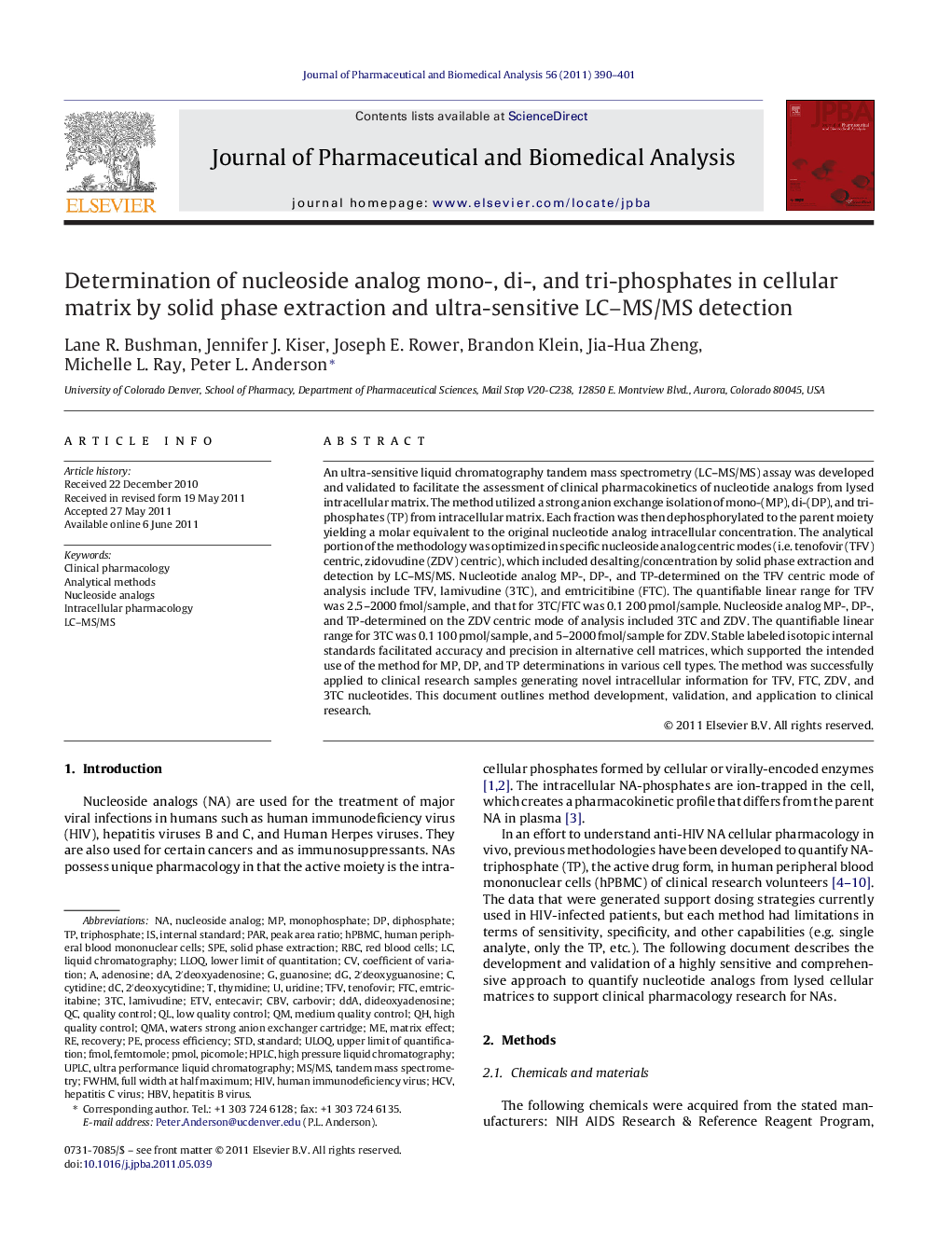| Article ID | Journal | Published Year | Pages | File Type |
|---|---|---|---|---|
| 1221178 | Journal of Pharmaceutical and Biomedical Analysis | 2011 | 12 Pages |
An ultra-sensitive liquid chromatography tandem mass spectrometry (LC–MS/MS) assay was developed and validated to facilitate the assessment of clinical pharmacokinetics of nucleotide analogs from lysed intracellular matrix. The method utilized a strong anion exchange isolation of mono-(MP), di-(DP), and tri-phosphates (TP) from intracellular matrix. Each fraction was then dephosphorylated to the parent moiety yielding a molar equivalent to the original nucleotide analog intracellular concentration. The analytical portion of the methodology was optimized in specific nucleoside analog centric modes (i.e. tenofovir (TFV) centric, zidovudine (ZDV) centric), which included desalting/concentration by solid phase extraction and detection by LC–MS/MS. Nucleotide analog MP-, DP-, and TP-determined on the TFV centric mode of analysis include TFV, lamivudine (3TC), and emtricitibine (FTC). The quantifiable linear range for TFV was 2.5–2000 fmol/sample, and that for 3TC/FTC was 0.1 200 pmol/sample. Nucleoside analog MP-, DP-, and TP-determined on the ZDV centric mode of analysis included 3TC and ZDV. The quantifiable linear range for 3TC was 0.1 100 pmol/sample, and 5–2000 fmol/sample for ZDV. Stable labeled isotopic internal standards facilitated accuracy and precision in alternative cell matrices, which supported the intended use of the method for MP, DP, and TP determinations in various cell types. The method was successfully applied to clinical research samples generating novel intracellular information for TFV, FTC, ZDV, and 3TC nucleotides. This document outlines method development, validation, and application to clinical research.
